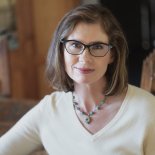But, relationships hit rough patches, some rougher than others.
Those who are more educated and have more money tend to have the lowest rate of divorce. Financial arguments and time deficiencies in the relationship seem to be less likely.
Money, Money, Money
Money is a major cause for divorce. It attracts anxiety. “If you get what you want, how do I get what I want?” Many families don’t cover a framework for understanding money, making it even more difficult. Earnings are also attached to a feeling of personal value, which can lead to challenges when one partner earns more.
A couple must think about the big picture together. Consider what collective goals you have with your combined earnings. Work together to use those resources in a way you both like.
Growing Old Together
Aging is tough. People become self-critical as pounds appear, hair disappears and wrinkles develop. Don’t encroach on your partner’s autonomy when you notice these changes. The emotional connection should be stronger than your concern about aging bodies.
Your Part in Unhappiness
If you feel unhappy in your relationship, the first place to look is within. Examine what you are bringing to the situation. Your character, temperament, history and mindset all join you in the relationship. Looking at your own story gives you great power and freedom.
Listen as Dr. Daphne de Marneffe joins Dr. Pamela Peeke to shed light on relationship rough patches and how to get through them.

 Daphne de Marneffe, PhD, is a psychologist and the author of Maternal Desire: On Children, Love, and the Inner Life.
Daphne de Marneffe, PhD, is a psychologist and the author of Maternal Desire: On Children, Love, and the Inner Life.